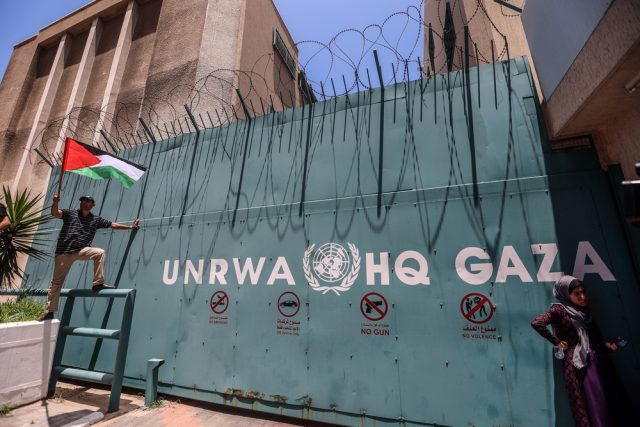
The bomb dropped by Israel in recent days is politically highly explosive, especially in terms of the continuation of the Middle East conflict between Israel and Palestine. The protagonist of the affair is Unrwa, the United Nations agency that assists Palestinian refugees, the only ones to benefit from “special treatment”: in fact, Unrwa is the only agency that is detached from the UNHCR, the body that is precisely in charge of assisting other refugees around the world. The Israeli accusation would be that Unrwa is not a guarantor of political neutrality, since it has members who are not only ideologically pro-Palestinian, but even pro-Hamas terrorists, going so far as to praise and collaborate with them during the 7 October attack.
Lecturers who glorify armed struggle
A damning accusation which, if confirmed, would embarrass and cast serious doubt on the entire structure of the United Nations and its declared neutrality. Indeed, the report published in January by the Israeli military radio station Galei Tzahal, based on investigations by the Shin Bet, Israel’s internal security service, claims that during the 7 October attack, some UNRWA staff took part in the attacks, collaborated in terrorist activities and established links between schools in the Gaza Strip and Hamas military corridors, which served as warehouses for “combat equipment and educational texts glorifying armed struggle”. In addition, according to Israel, several UN agency teachers allegedly celebrated the 7 October terrorist attack on Telegram, calling Hamas members “heroes”. These reports were confirmed by the Israeli Ministry of Defence, which provided further evidence and more precise figures on Unrwa’s alleged involvement with terrorist organisations: in fact, 485 of the agency’s employees are members of Hamas’s military wing, while 1,450 are members of Hamas and Islamic Jihad. More than 6,000 are therefore members of Hamas-related organisations. Finally, 12 are the employees involved in the 7 October attacks, seven of whom are teachers. The Israeli claim is supported by the fact that Unrwa does not recognise Hamas as a terrorist organisation and therefore does not exclude its members from membership of either organisation.
Unrwa’s growth over the years
Unrwa, which currently cares for Palestinian refugees not only in Gaza but also in Jordan, Syria, Lebanon and the West Bank, has expanded significantly in recent years, both in terms of membership and funding. By 2023, the number of staff had reached around 30,000. This is a much higher number than UNHCR’s 18,000 employees, especially when considering the relationship with the different populations they support: UNRWA serves about 5.9 million people, UNHCR 59 million. What’s more, Unrwa staff receive salaries well above the Palestinian average: around $1,100 a month compared with $260 for the average Gazan. In terms of investment, the funds allocated to the agency have gradually increased over the years: in 2012 they did not reach $1 billion. In 2017, the threshold was exceeded by $1.3 billion, finally reaching $1.63 billion in 2023. The Palestinians also complain that refugee status is granted too easily.
UN-funded pro-Hamas propaganda.
The UN’s response was swift: the international organisation asked an agency headed by Catherine Colonna, until a few months ago France’s foreign minister, to investigate the matter. The study admitted that Unrwa faced “persistent problems of political neutrality”, but that the agency remained “a humanitarian lifeline”. Then came the indictment of Israel, which allegedly failed to provide sufficient evidence of ideological bias in its investigation. However, not only is the UN investigation still ongoing, but it must also be acknowledged that Israel has managed to put on paper names, documents and pictures proving the closeness of the agency’s staff to Hamas terrorists. Moreover, the data mentioned above show that behind UNRWA there is an entire economic system that keeps much of Gaza society alive. It is a kind of business from which the terrorists could benefit indirectly: the most important, but also the most risky, would be the training of new Palestinian generations in guerrilla warfare.



 Subscribe
Subscribe